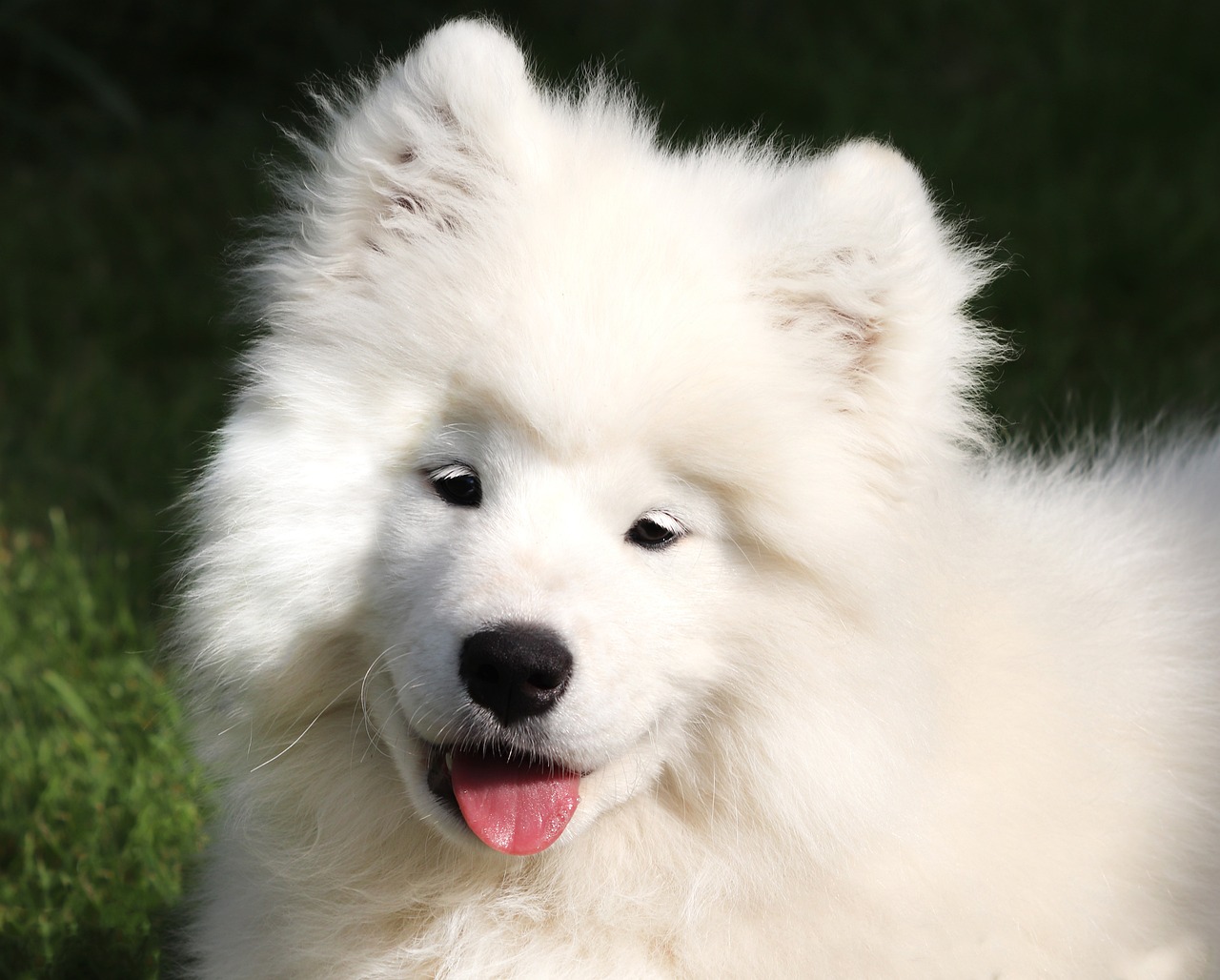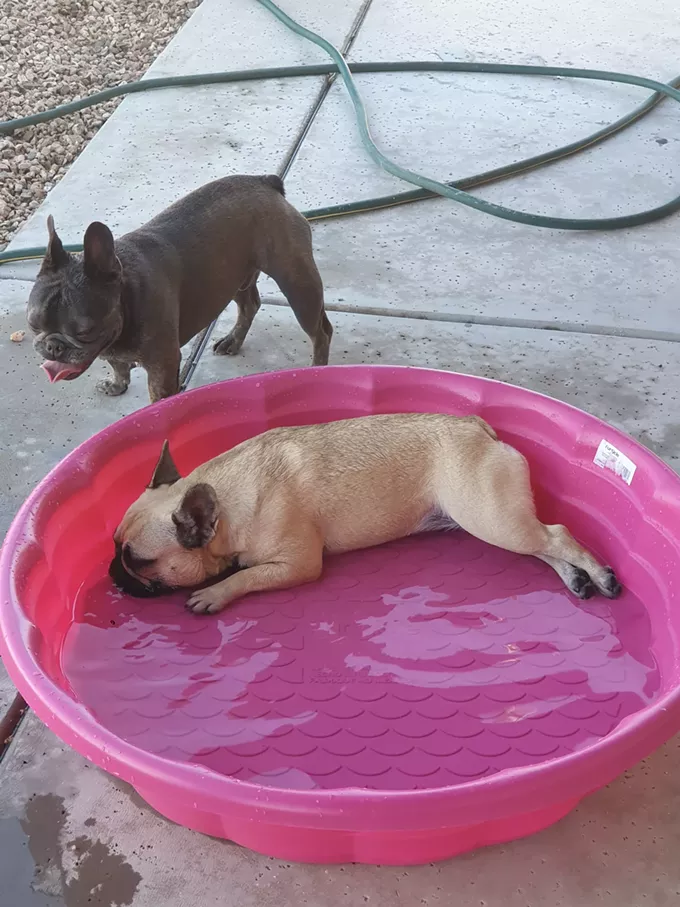#7 – Vet’s Best Ear Relief Wash Cleaner for Dogs, 16 oz Refill
The Vet’s Best Ear Relief Wash Cleaner for Dogs is a product that provides immediate relief for dogs with raw, itchy, smelly, or greasy ears. Its natural ingredients, such as witch hazel, chamomile, aloe vera, clove oil, and tea tree oil, help control unpleasant odors and itching. It can be used daily or as needed to clean ears and control wax build-up and is part of a complete treatment system for dog ear care.
How Often Should I Clean My Labradoodle’s Ears & How Should I Clean Them?
 Labradoodles, with their lovable personalities and curly-to-wavy coats, have rapidly become a favorite among dog enthusiasts. However, their Poodle ancestry, characterized by deep and narrow ear canals, combined with their luxurious coat, predisposes them to ear issues. Thus, regular ear care is paramount for these canine companions. Let’s explore the frequency and methodology of cleaning Labradoodle ears and understand the implications of allergies on this routine.
Labradoodles, with their lovable personalities and curly-to-wavy coats, have rapidly become a favorite among dog enthusiasts. However, their Poodle ancestry, characterized by deep and narrow ear canals, combined with their luxurious coat, predisposes them to ear issues. Thus, regular ear care is paramount for these canine companions. Let’s explore the frequency and methodology of cleaning Labradoodle ears and understand the implications of allergies on this routine.
Frequency of Cleaning for Labradoodles:
Labradoodles have ears that can trap moisture and debris easily, making them susceptible to infections. While individual needs can vary, some general guidelines are:
- Regular Checks: Examine your Labradoodle’s ears at least once a week. Look for signs of redness, excessive wax, unusual discharge, or any off-putting odor.
- Cleaning Routine: If your Labradoodle is predominantly indoors and has minimal exposure to dirt and water, cleaning every 2-3 weeks might suffice. However, if your dog enjoys water play or rolls in the grass often, weekly cleaning may be required.
Cleaning Procedure for Your Labradoodles:
1. Preparation: Assemble the essentials – a high-quality canine ear cleaner, cotton balls or pads, and perhaps gloves for your hands. It’s essential to avoid Q-tips as they can push debris further in or damage the eardrum.
2. Calm Your Labradoodle: Cleaning can be a new sensation for many dogs. Ensure your Labradoodle is calm, using gentle strokes and a soothing voice. Providing treats can also help make the experience more positive.
3. Cleaning Process:
- Carefully lift the ear flap to expose the ear canal.
- Pour the ear cleaner into the canal, but be sure to read the product instructions for the exact amount.
- Gently massage the base of the ear for about 20-30 seconds. This helps in breaking up any debris and wax buildup.
- Allow your Labradoodle to shake its head, aiding in the removal of the loosened debris.
- Use a cotton ball or pad to wipe away the visible dirt, wax, or discharge. Always wipe from the inside out, and be careful not to push the cotton too deep.
4. Drying: After cleaning, ensure the ear is dried thoroughly. Use a dry cotton ball to dab away any excess cleaner or moisture. Damp environments can encourage bacterial and yeast proliferation.
5. Positive Reinforcement: Always conclude with praise or a treat. This association makes future cleanings more manageable and less stressful for your pet.
Allergies and Ear Cleanings of Labradoodles:
Labradoodles, like many breeds, can be prone to allergies which significantly influence ear health. Allergic reactions can cause increased wax production or inflamed and itchy ears, which can trap debris and promote infections.
If your Labradoodle shows allergy symptoms such as:
- Excessive scratching or licking
- Inflamed skin or ears
- Watery eyes or sneezing
Consider the following steps:
- Increase Cleaning Frequency: Allergies might necessitate more frequent ear cleanings, possibly even weekly, to alleviate symptoms and prevent infections.
- Seek Veterinary Assistance: Recurring ear issues can often indicate underlying allergies. Veterinarians can identify specific allergens, recommend changes in diet or environment, and even prescribe medicated ear drops or cleaners.
A Labradoodle’s captivating curls and endearing nature are undoubtedly irresistible. Yet, beneath that attractive exterior, their ears demand consistent and diligent care. Regular ear cleaning is not just about maintaining hygiene but also about ensuring your Labradoodle’s comfort and health. Recognizing the signs of allergies and adjusting your cleaning routine accordingly can also go a long way in preventing complications. With proper attention to their ears, your Labradoodle is set for a lifetime of playful days, free from the discomfort of ear issues.
Frequently Asked Questions About Ear Cleaning for Labradoodles
1. Why is ear cleaning essential for Labradoodles?
Labradoodles inherit a unique ear structure from their Poodle ancestry, characterized by deep and narrow canals, making them prone to trapping moisture and debris. Regular ear cleaning helps eliminate this accumulation, preventing bacterial and yeast infections. Maintaining clean ears ensures your Labradoodle’s comfort and overall health.
2. How often should I inspect my Labradoodle’s ears?
It’s advisable to check your Labradoodle’s ears once a week. Regular inspections will help you detect redness, excess wax, unusual discharge, or any off-putting odors, which can be early signs of infections or other issues.
3. Are human ear cleaning products safe for Labradoodles?
No, you should not use human ear-cleaning products on Labradoodles or any other dogs. These products may contain ingredients or have a pH balance unsuitable for canine ears, potentially causing irritation or imbalance in the dog’s ear environment.
4. What signs indicate an ear infection in my Labradoodle?
Common signs of ear infections include frequent head shaking, scratching at the ears, redness or swelling inside the ear canal, an unpleasant odor, a brown or yellow discharge, and potential behavioral changes like increased irritability. If you observe these signs, consult a veterinarian.
5. How do allergies impact my Labradoodle’s ear health?
Allergies can cause increased earwax production, inflammation, and itchiness. Labradoodles with allergies might scratch their ears more often, increasing the risk of introducing infections. Recognizing and addressing underlying allergies can significantly reduce ear-related issues.
6. Can I use natural remedies, such as coconut oil, for ear cleaning?
While natural remedies like coconut oil may offer some benefits, it’s crucial to consult with your veterinarian first. Some natural products can either cause allergies or fail to address the specific needs of a Labradoodle’s ear, potentially leading to complications.
7. How can I make ear cleaning a stress-free experience for my Labradoodle?
Start by ensuring your dog is calm, using a soothing voice and gentle strokes. Make the cleaning process swift yet gentle, and always end with positive reinforcement like praise or a treat. Over time, your Labradoodle will associate ear cleaning with positive outcomes.
8. My Labradoodle frequently swims. How does this impact ear cleaning frequency?
Swimming introduces moisture into the ears, making Labradoodles more prone to ear infections. If your dog swims often, it’s essential to clean and dry its ears thoroughly after each swimming session to prevent moisture buildup and subsequent infections.
9. Is there a risk of cleaning my Labradoodle’s ears too often?
Yes, over-cleaning can strip the ear canal of its natural oils, potentially leading to dryness and irritation. It’s essential to strike a balance based on your Labradoodle’s specific needs, activity levels, and any existing health conditions.
10. My Labradoodle’s ears always seem dirty even after cleaning. What should I do?
Persistent dirtiness or an unusual smell can indicate a chronic issue, such as an infection or allergies. In such cases, it’s essential to seek veterinary consultation to determine the root cause and receive appropriate treatment recommendations.









